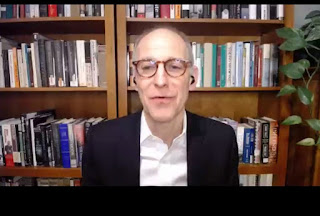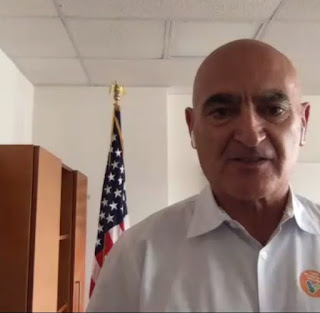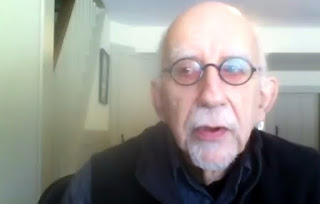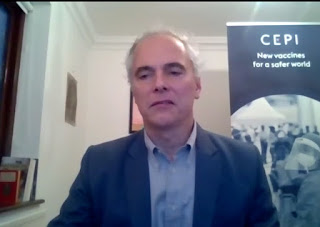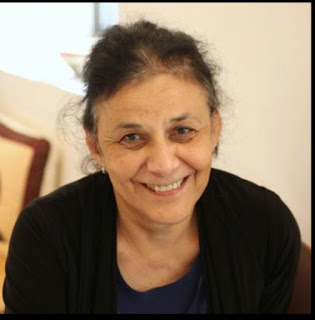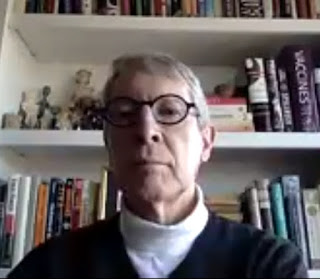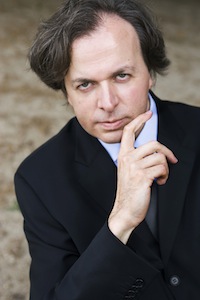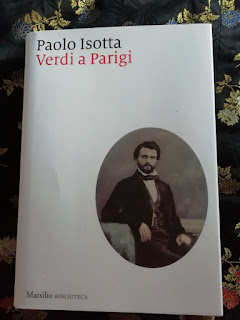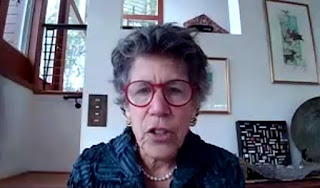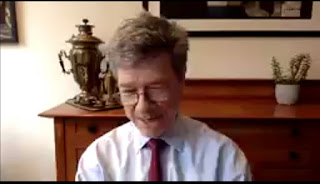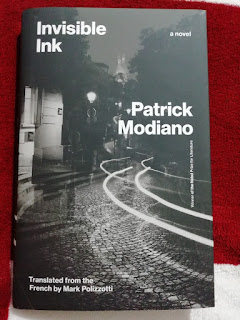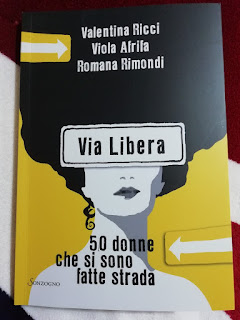The Symposium Vaccines and Global Health: COVID-19 Vaccine Development, Strategy and Implementation organized by Columbia University is over. Five stimulating days where vaccines, and vaccination against COVID-19 lived a global approach, seeing what will happen next.
For personal reasons I could not follow the third event (smartphone connection problems) but I followed the other part of the symposium.
The fourth day moderator Linda Fried the first person to speak was Anthony Fauci, MD, Director, National Institute of Allergies and Infectious Disease, National Institute of Health. At first Fauci returned to speak of the HIV/AIDS outbreak. During the Clinton administration the President pressed for the discovery of a vaccine. And there are good news in this sense because the National Institute of Health has established a new AIDS vaccine research center. First trial of the vaccine against HIV is successful.
COVID-19: what kind of technology needed to be used for the coronavirus? Technologies known are the most diversified. A genetic immunization using the RNA of the virus (Pfizer, Moderna) and the viral vector, (Astrazeneca and Sputnik) the one taken in consideration.
Genetic solutions was also known for SARS, MERS, West Nile, Zika and more; viral vector for Ebola Marburg and the same Zika. A virus pretty known the influenza one, and a vaccine every year re-fixed and in commerce every year uses the recombinant protein, but in some cases a vaccine can be created using nanoparticles; what does that mean? Viral protein on particles.
Let's see now Moderna vaccine, the one received by Fauci. Moderna Biontech uses as said before mRNA of the virus, so the nucleid acid. This protein, the spike one is the "skin" let's use this expression of the virus, the one that aggressively enters in our cells.
The body, once receives it through the vaccine, recognizes it and starts the production, what a joy! of antibodes. Efficacy is extremely elevated in every sense.
Fauci underlying the simplicity of manifacturing this vaccine; it is also highly immonogenic.
Astrazeneca and Jannsenn uses an Adenovirus vector, so a virus taken by a mammal. This vaccine is known and distributed in Europe and uses the same technology of the one of Sputnik, in this case russian.
Novavax and Sanofi vice-versa uses an adjuvanted recombinant protein. Fauci underlying that it is not simple to see this product manifactured as the other vaccines seen before.
But why was it possible a vaccine in record-time? All the humanity, together, united the forces for the creation of a vaccine in grade the make the difference, setting free the humanity from this pandemic influenza. Sure: now it will be necessary the creations of billion of doses of vaccines for covering the entire world.
In the USA the distribution is divided in four part: the first one was for health care professionals and long-term care facility residents, the second for frontiline essential workers and persons aged 75 and more; the third for persons of 65-74 years then for people aged 16-64 years with high-risk conditions and then the phase two for all that people not included in the first phase of vaccination aged 16 years or older.
Sometimes we find skepticists about vaccination. Why this? Fauci focused this sad story in several points: people are mainly worried regarding long-term effects of the COVID-19 vaccines, because unknown but also because they think that they can experiment strong side collateral effects or, vice-versa they think that these vaccines are not effective, or that, yes there are people also thinking this, that they might fall sick of COVID-19 thanks to the vaccine (sic!)
There is some confusion.
There are no problems. The same President Biden and Vice-President Kamala Harris have been vaccinated, and the same Fauci, Collins and Azard were.
Monitoring the situation of the first doses inoculated, it was seen that there hasn't been any weird or strong collateral effects and there is also a great news: anaphylaxis is very rare!
Why is it so important a vaccination against COVID-19?
Herd immunity is a first and crucial step for avoiding to the COVID-19 virus to create more big and massive damages. Using massive doses of hi and so people vaccinated, the rush of the virus will be interrupted or weaken, because, simply, he won't find anymore any "guest," I use the word guest for human body, where he can enters in, uninvited, and creating wagons of problems, in most cases lethal ones.
Not only: a strong vaccinations, we know that the british variant is OK with this vaccines like other variants, would interrupt them as well; slowly the virus would become always more weak and impotent and one day only a cold or a little flu.
It's important in this phase a massive vaccination. In every place where vaccine doses massively inoculated it was possible to see that hospitalizations were strongly reduced and countries much more safe (always using mask, social distancing and cleaning hands compulsively).
Then Fauci analyzed the variants and their presence in the world: the so-called B.1.1.7 originally "born" in the UK is now in 77 countries; in the USA recognized 1881 cases in 44 States. What the UK, British variant causes? An exponential increased trasmissibility; a possible incresed severity of the illness in general and only marginally, a reduced vaccine efficacy and in-vitro neutralization by vaccine induced antibodies.
The B.1. 351 has been spotted in 37 countries. At first born in South Africa, this variant, is in the USA with 46 cases in 14 States. This one is a more complicated variant. As for the british one there is an increased in transmissibility; what Fauci underlined is that there is a moderately to severely reduced vaccine efficacy; and in vitro has been seen that neutralization by certain monoclonal antibodies may be severly reduced.
Then there is the P.1 variant, originally born in Brazil: it is in 33 countries, in the USA there are just 5 cases in 4 States, which is comforting; in this cases antibodies elicited by previous infection or vaccine may be less effective.
So; next generation of anti-COVID-19 vaccines will take in consideration specific variant, and approaches to increase breadth protection, plus there are new studies about pregnant women and children, immunocompromised individuals and highly allergic individuals, so that everyone can be covered by COVID-19!
What would be wonderful to reach is this goal: an universal COVID-19 vaccine!
George F. Gao, PhD – Director, China CDC – China’s Role in COVID-19 Vaccine Development spoke of the situation of vaccination and vaccines in China. There are several vaccines ready in China and other ones close to be approaved and 32 million of people have been vaccinated till now in the various provinces.
These vaccines are: inactivated, nonreplicating viral vector, protein subunit, mRNA, DNA, replicating viral vector.
The doctor started with the story of the novel Coronavirus discovered in Wuhan, province of Hubei; unknwon and weird, a
dangerous pneumonia unresponsive to common cures started to devastate the city and rapidly the diffusion in the rest of the world. Chinese autorities and doctors sequenced pretty rapidly the virus and put all their possible knowledge, including this discovery of the genomic sequences of the virus available to the rest of the world. The rush for a cure and a possible vaccine started that day.
Vaccination is completely free in China, and China is providing 10 million COVID-19 doses to COVAX.
Richard Hatchett, MD – CEO, Coalition for Epidemic Preparedness Innovations talked of CEPI: the center deployed 1,3 billion dollar to develop COVID-19 vaccines, through 11 partnerships, and this one represents the largest vaccine portfolio globally. The purpose is to make two billion of doses available through the end of the year through COVAX. The role of COVAX is to meet the challenge of pandemic collectively, for the benefit of all regardless of income level.
But what is CEPI? CEPI is a global coalition made by public, private, philantropists, and civil society organizations. CEPI stimulates the creation of vaccines for emergin infectious diseases, identifying priority treats and acting when market forces fail to drive needed development. They also build capabilities for rapid response to uknown threats.
The final day A Most Remarkable Year in Vaccines,
Moncef Slaoui, MS, PhD – Former Director, Operation Warp Speed, US Government remarked the importance of technologies, much better than the ones of 5-6 years ago: there was a biggest learning in manifacturing and in case of a next pandemic world woud be much more prepared. Companies asked to the government of not interfere, giving at the same time trust to the system.
Ezekiel Emanuel, MD, MSc, PhD – Vice Provost, Global Initiatives, University of Pennsylvania was sure of it: Vaccine is
the best answer to this disaster.
The plan of WHO the one of proportionally allocate doses of vaccines to countries until all countries reach enough quantities for a 20% of coverage. The Fair Allocation Model will prevent premature death, focusing in a second phase on overall economic improvement,prioritizing at first countries with higher transmission rates and giving to to all countries sufficient vaccines to halt transmission.
Thanks to COVAX more than 2 billion of doses will be distributed in the world and 92 poorer countries covering the 20% of population.
Ghana is a very poor country but COVID-19 didn't effect a lot the population: there are in the state 30 million of people and Ghana developed only 82.000 cases and just 600 death! Peru vice-versa with a population of 32 million people developed 1.3 million of COVID cases with 4.000 deaths from COVID.
Where the market is failing?
The current patent regime obstructs optimal vaccine production and limits access to innovation therapies; not only: there is an unfair distribution of vaccines based on wealth and not burden.
A good approach to the problem would be an altruistic tiered pricing approach, open licensing approach, a mixed bilateral multi-lateral approach, a complete multi-lateral institutional approach.
Oh, in this cases companies will be obliged to tier price according to each country's financial capacity donating at the same time vaccines for the lowest income countries.
Ethically is better to vaccinate as more people as possible with a first dose, because it means rushing much more for giving a coverage against this horrible illness to as many people as possible.
A first jag gives a good immunity, and at the same time a strong vaccination of a lot of people will mean putting in security people, countries and their sanitary system.
There are important reflections regarding the situation of the world; a chinese relator remarked that in China there are just sporadic cases imported, that they don't have new outbreaks, and more important no variants are presents in their territory
OK: I tried to soum the most I followed. Unfortunately because of the time difference between New York and Italy and my internet connection, just a smartphopne, I could not be there for all the relators, but it was immensely beauty following wonderful human beings that are trying to resolve as quickly as possible this pandemic pandemonium.
I thank so much Columbia University for the invitation because I follow COVID-19 since the beginning and also pretty compulsively because...it was simple to imagine that this one, being an uncurable pneumonia, would have been the biggest threat in a couple of months, for the entire world, our pandemic flu.
I shared all these months news for giving to the people the possibility of saving their existence. This one to me has always been a priority and in my little I do that it as well everyday
I am a reporter but since now I hadn't never given coverage to any COVID-19 news, apart some book reviews so I am absolutely grateful! also for this possibility.
Anna Maria Polidori

